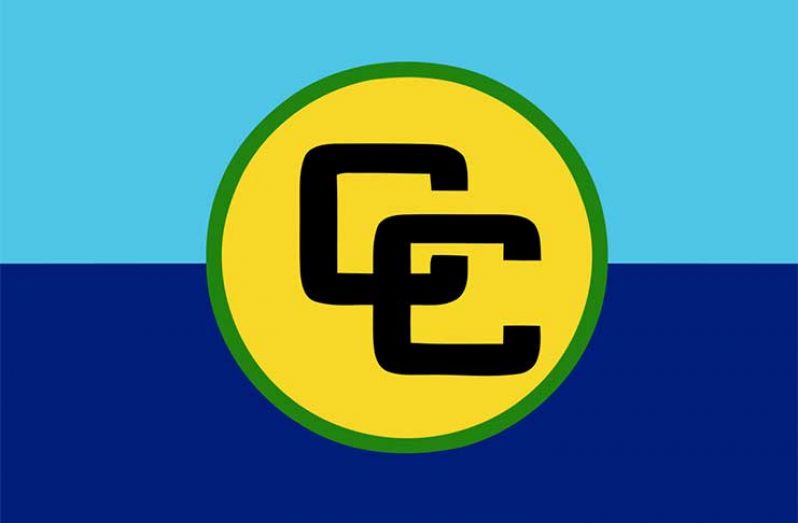…Guyanese urge legalisation, small fines
A CARICOM-sponsored consultation on the use of marijuana heard complaints here about the exorbitant fines and lengthy jail sentences for persons found with small quantities of the drug and also utensils used to smoke it.
While medical science has shown that there can be medicinal use derived from the marijuana plant, it has also indicated that certain components of the drug can have negative impacts on mental health, Assistant Secretary-General of CARICOM, Mr. Douglas Slater, pointed out. Slater is overlooking a project aimed at researching the use of marijuana by members of the ‘CARICOM Marijuana Commission,’ who have been appointed by Heads of Governments to explore the issue in the region.
The commission met members of the public for a consultation on Monday evening at the Saint Stanislaus College, Brickdam. They plan to use their findings, along with those from similarly held consultations in the region, to come up with a report and recommendations to their heads. In opening remarks, Slater, who is not one of the commissioners, reminded that marijuana, also referred to as ganja, is an illegal drug in the CARICOM community.
“Initially, the heads [of governments] were looking at the economic potential that exists from exploiting the beneficial chemicals of marijuana, but later as they explored more, they realised that the lives of many people, especially young people, have been destroyed from getting involved; sometimes [for] even a small quantity of the use of marijuana, they can get a criminal record which can mean the end of their social development, their lives.” As such, he said the commission, which boasts independent expertise from all across the Caribbean, is tasked with exploring the issue.
Chairing the Commission is Professor Rosmarie Antoine, who offered that the issue is a very complex one in the Caribbean. She said legalisation, a more all-out approach, has to be looked at against decriminalisation which will not incur criminal penalties. One of the things that seem to be fairly constant from the team’s research is the different impacts of marijuana on very young children, Antoine pointed out.
Other commissioners include youth representative Kishore Shallow of St. Vincent, Social Scientist Esther Best of Trinidad and Tobago, Bishop Simeon Hall from The Bahamas, and law-enforcement officer Dormah Harrison of Jamaica.
Way of Life
Mr. Leon Saul, representing the ‘Healing the Nation Theocracy Party,’ said this party contested the 2015 general elections based solely on the platform of legalising marijuana. “In fact, we decided to create a political party just for that purpose.
Our party decided that it is such a political question, that we need to have political representation, Saul who has been ‘burning’ marijuana since 1977, offered. It was when he was arrested and charged in 2014 that he said he made up his mind to become “militant and activist” on a right he feels he ought to enjoy. “And more so as a Rasta man, because it is part of my way of life and how I worship the creator.”
“We advocate total legalisation of marijuana, no half measures; but based on strategy and tactics and networking and the ability to work with others, we will settle for decriminalisation,” Saul said. Youth Activist Jermaine Grant pointed out to the commission how the possession of marijuana is a non-violent offence that guarantees jail time once found guilty. He referred to the country’s ‘Narcotics Act,’ which he indicated should be amended or repealed without delay.
Grant offered how the jailing of citizens for small amounts of marijuana is compounding prison overcrowding and is a financial burden to the public to maintain those incarcerated. “A lot of us are talking based on whim and our own ideas. We need to value our people and not jail them for a few grams. Allow our judges and magistrates a law to impose lesser penalties and fines or community service. Allow our young people to not waste time in jail for small quantities of ganja, Grant stated.
A medication
Rights of the Child Commissioner, Ms. Nicole Cole, offered in her presentation that a fine of no more than $1000 should be the penalty for being found in excess of 56 grams. She is calling for the jail sentence and fine to be struck out when persons are found with utensils used to smoke marijuana.
Furthermore, Cole said each household should be allowed to legally grow up to five marijuana plants on their premises, because she said it is a medication.She referred to the oldest female prisoner in the New Amsterdam Prison at the moment who is serving a three-year sentence for merely being in possession of stems and leaves.
The 77-year-old woman, who used the drug for tea, would need $600,000 just to appeal her sentence. Cole is hoping that this prisoner would benefit from a presidential pardon.




.jpg)









